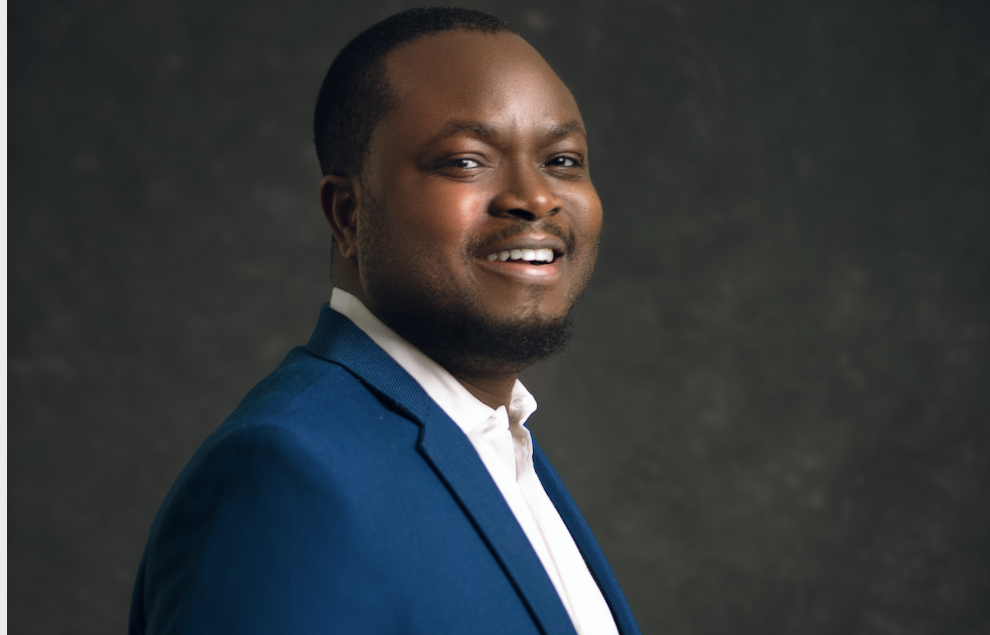Interview: Medical Doctor Who Became A Successful Tech Founder And Raised $10M Tells All

Emmanuel Okeleji is the co-founder and CEO at SeamlessHR, a cloud-based HR and payroll technology company that recently announced its $10 million series A. His work and entrepreneurial experiences span multiple industries, including healthcare, agriculture, and education.
By the end of medical school, Okeleji had gone through a Goldman Sachs investment banking internship and kicked off an incorporated software development company alongside his current co-founder, Deji Lana. One of the tools they built back in the mid to late 2000s, a software tool for cooperatives, is still in use today.
Before SeamlessHR, Emmanuel also served on the founding team of Lifeplan Healthcare Limited as assistant project director on the largest private equity-funded hospital project in West Africa ($100million).
In 2012, Okeleji then started Insidify, a job aggregator platform but the company wanted to do more than post job adverts and link employers with qualified employees and that’s when SeamlessHR was launched several years later.
SeamlessHR is now rich with human resources and payroll data after handling salaries for several hundreds of companies in Africa.
But building a Software-as-a-Service (SaaS) company in Nigeria is difficult.
We Sat Down With Him For A Tell-All Interview
Two Words That Best Describe You?
Passionate and deliberate
You Spoke A Lot About A Culture – How Do You As A CEO Create A Good Working Culture?
First, I have to be true to myself – there’s the golden rule of doing unto others what you expect to be done to you. I think that was my fundamental way of thinking, what kind of company do I really want to build? What kind of company would I love to work in? You know, if I was an employee. And I documented that and focused on building a company that had those values.
So once we define what we wanted to build, the next thing was to document it – I think the most powerful thing we’ve done for our culture is that we have a culture deck where people can actually read about how we want to work as a company and as a team.
Number one is that it defines things and removes confusion. Excellence means different things to different people, so when I say it’s a core value for us, having a culture deck removes the confusion and makes the meaning clear to everyone what it means to the organization.
Let’s Talk More About Your Journey. Did You Always Know That You Would Get Into I Guess Tech And Business?
No, I practised medicine for a while in Nigeria as I used to be a doctor, but I was born into an entrepreneurial home – so at a young age, I would sit in my family’s board meetings as an observer. This early experienced sowed the seeds of entrepreneurship in me, effectively wiring me to constantly build, develop, and solve problems.
Finding A Co-Founder Isn’t Always Easy – Did You Have Any Struggles?
I never had a co-founder problem and I think that one of the luckiest things that I have going for me is my co-founder. We’ve been buildings things together since 2005 and are very complementary to one another.
But the biggest challenge is finding talent because there aren’t many SaaS companies out of Africa. That means we can’t find people who have done it before to hire because we’re the pioneers.
So now we’re beginning to hire outside Africa. Just before this interview, I was at a meeting with someone in the UK whom we’re looking to hire at a senior level.
You Recently Raised $10M – Congratulations. What Advice Would You Give To Those Still In The Starting Phase Of Raising Capital?
So, we’ve raised in the three cycles – we had the angel round earlier on before we pivoted to HR tech. Then we had a seed round in 2020 bang in the middle of the pandemic, and a $10 million Series A that closed in January of this year. At the beginning of this journey, we bootstrapped for many years but have now transitioned through many phases with more capital to grow the business but still very deliberate with every spend.
My advice to those raising money is first to be aware of the considerations for different stages. It’s important when you’re raising money to be clear about two things: one, the value you’re presenting to the world in terms of your product or service and its utility to the world; and two, what your story is and how you will tell it.
That said, the details of each stage of fundraising differ and it’s important to be mindful of that. For instance, at the pre-seed stage, you are potentially pre-revenue and at that point, an investor is taking a bigger risk backing your ideas, vision, story, and personality as a founder.
At the Seed stage your story has been further validated, you likely have some revenue. In Series A, you have demonstrated the impact of your story to a considerable point, achieved what is called a product-market fit, made some money, and are ready to scale your business to the next level, and so forth.
In summary, a good blend of your story, the value you are bringing to the world, your character, your experience and skills, the right team behind you, your mileage, and a solid believable plan for a future of continuous growth, are the things that should be on any potential entrepreneur’s checklist on the fundraising journey.



